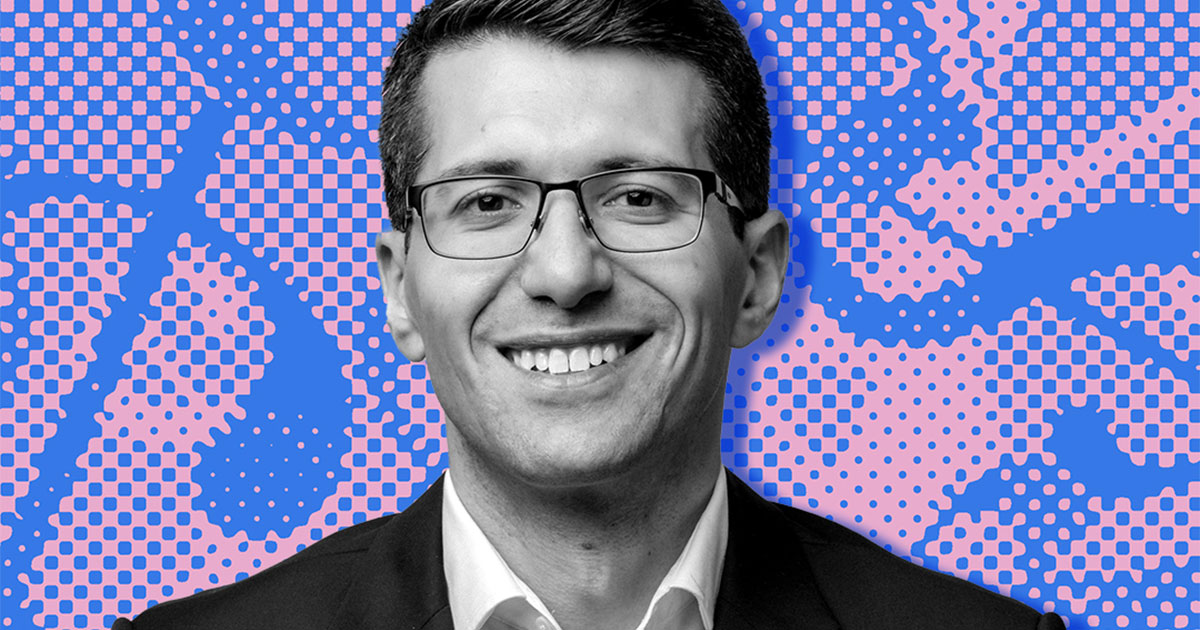Investment
Do online communities add value to your investment decisions? | Mint – Mint

If you want proper investment ideas, speak to a financial advisor. This sage advice, however, leaves many questions unanswered. How do you find good advisors? Will they have all the answers that you need? Can you afford an advisor?
Investors have often turned to online communities to find answers to these and other questions. In this piece, we look at whether some of these established and emerging online communities add value to your investing decisions.
“Dedicated investment communities are the next stage of evolution in social media around investing. Social media such as Twitter, Facebook or Instagram are generic – used to discuss all kinds of subjects without flows specifically designed for investing,” said Mihir Patki, co-founder of Multipie, one of the new online communities. “The second problem is that of fake profiles, screenshots and random gyan (wisdom) without context. Multipie is solving for this by keeping portfolios authentic through integrations with broker partners,” he added. Essentially, the users’ holdings will be sourced from their brokers with their consent rather than a self-declaration.
“Privacy of all users is maintained—absolute numbers are not shown by us, only asset allocation and top holdings are shown, just like you would discuss your portfolio with friends in real life”, said Patki. “Launched in October, 2021, our user base of more than 100,000 is purely organic. The quality of engagement on Multipie and the average portfolio size of ₹50 lakh are far better metrics than mere numbers of millions of inorganically acquired users who cant contribute to the community. We are not chasing user growth for the sake of it,” Patki added.
Then there is Valuepickr, a stocks-related discussion forum that was launched in 2010. The forum has threads on stocks running back for years, allowing readers to see how the discourse around a stock has evolved. Since the platform is free, it avoids bells and whistles that profit-oriented businesses use to keep users engaged. Its focus is on fundamental analysis of stocks, generally in the small cap space that the large institutions have not discovered. It also has a community that actively moderates content. “Any day trading targets or short term behaviour is discouraged by the community,” said Donald Francis, its co founder. “ In addition, Valuepickr has a section in which only ‘collaborators’ can post. This is a group of around 30 people who have been vetted by the platform founders. Based on the quality and frequency of posts, we admit 3-4 new collaborators each year and roughly the same number are removed,” he added.
Finance has traditionally been dominated by men, but there are women-only communities as well. Priti Rathi Gupta set up LXME, one such community in 2019 as a Facebook group. “It was a closed group and our idea was to develop a safe space where women could talk about investments. Women didn’t know where to have money conversations. Nobody was talking about it at home or among friends, and advisors are generally men and so there was a disconnect. The group has now grown to 30,000 women and 60% of them engage with it on a daily basis,” she said.
LXME also has an app with around 40,000 users, according to Rathi Gupta. The platform focuses on financial education and then allows women to invest through it (LXME is a mutual fund distributor, an entity separate from Anand Rathi which is itself a large mutual fund distribution firm).
According to Rathi Gupta, the community element is important, particularly for women, especially those who are not high net worth individuals. For such women, advice is not readily available. “If we find people posting things that are not appropriate, for instance promoting some unknown cryptocurrency, then we do comment on it putting forth our view. That’s how we moderate the platform, but we don’t delete any posts. Many women advisors are part of the LXME. We don’t, however, permit direct solicitation of clients,” said Rathi Gupta.
Even as investment-themed communities have risen, it is important to ask how each such group makes its money. Multipie, for instance, offers products like NCDs and corporate FDs to users and earns commissions from them. It will soon start charging brokers for integrating the platform into their websites. LXME is currently free, but users who invest through its app have to pay commissions (it is a mutual fund distributor). Valuepickr is free and that accounts for its bare bones interface, but you must be wary about community members who are posting merely to solicit clients.
In the past, online investing forums have come into the limelight for the wrong reasons. Examples abound about scamsters using them for pump- and-dump schemes. The surge in meme stocks such as Gamestop and AMC in the US triggered by discussions on Reddit underlines this. However, the right kind of forum, used in the right way can provide you with good information. These should at best supplement your own research, if you are a do-it-yourself investor or supplement the advice given by a qualified professional .
Investment
Deutsche Bank's Investment Bankers Step Up as Rate Boost Fades – Yahoo Canada Finance
(Bloomberg) — Deutsche Bank AG relied on its traders and investment bankers to make up for a slowdown in income from lending, as Chief Executive Officer Christian Sewing seeks to deliver on an ambitious revenue goal.
Most Read from Bloomberg
Fixed income trading rose 7% in the first quarter, more than analysts had expected and better than most of the biggest US investment banks. Income from advising on deals and stock and bond sales jumped 54%.
ADVERTISEMENT
Revenue for the group rose about 1% as the prospect of falling interest rates hurt the corporate bank and the private bank that houses the retail business.
Sewing has vowed to improve profitability and lift revenue to €30 billion this year, a goal some analysts view with skepticism as the end of the rapid rate increases weighs on revenue from lending. In the role for six years, the CEO is cutting thousands of jobs in the back office to curb costs while building out the advisory business with last year’s purchase of Numis Corp. to boost fee income.
“We are very pleased” with the investment bank, Chief Financial Officer James von Moltke said in an interview with Bloomberg TV. The trends of the first quarter “have continued into April,” he said, including “a slower macro environment” that’s being offset by “momentum in credit” and emerging markets.
While traders and investment bankers did well, revenue at the corporate bank declined 5% on lower net interest income. Private bank revenue fell about 2%. Both units benefited when central banks raised interest rates over the past two years, allowing them to charge more for loans while still paying relatively little for deposits.
With inflation slowing and interest rates set to fall again, that effect is reversing, though markets have scaled back expectations for how quickly and how deep central banks are likely to cut. That’s lifted shares of Europe’s lenders recently, with Deutsche Bank gaining 25% this year.
“Deutsche Bank reported a reasonable set of results,” analysts Thomas Hallett and Andrew Stimpson at KBW wrote in a note. “The investment bank performed well while the corporate bank and asset management underperformed.”
–With assistance from Macarena Muñoz and Oliver Crook.
(Updates with CFO comments in fifth paragraph.)
Most Read from Bloomberg Businessweek
©2024 Bloomberg L.P.
Investment
How Can I Invest in Eco-friendly Companies? – CB – CanadianBusiness.com


Welcome to CB’s personal-finance advice column, Make It Make Sense, where each month experts answer reader questions on complex investment and personal-finance topics and break them down in terms we can all understand. This month, Damir Alnsour, a lead advisor and portfolio manager at money-management platform Wealthsimple, tackles eco-friendly investments. Have a question about your finances? Send it to [email protected].
Q: It’s Earth Month! And… there’s a climate crisis. How can I invest in companies and portfolios funding causes I believe in?
Earth Day may have been introduced in 1970, but today it’s more relevant than ever: In a 2023 survey, 72 per cent of Canadians said they were worried about climate change. Along with carpooling, ditching single-use plastics and composting, you can celebrate Earth Month this year by greening your investment portfolio.
Green investing, or buying shares in projects, companies, or funds that are committed to environmental sustainability, is an excellent way to support projects and businesses that reflect your passions and lifestyle choices. It’s growing in favour among Canadian investors, but there are some considerations investors should be mindful of. Let’s review some green investing options and what to look out for.
Green Bonds
Green bonds are a fixed-income instrument where the proceeds are put toward climate-related purposes. In 2022, the Canadian government launched its first Green Bond Framework, which saw strong demand from domestic and global investors. This resulted in a record $11 billion green bonds being sold. One warning: Because it’s a smaller market, green bonds tend to be less liquid than many other investments.
It’s also important to note that a “green” designation can mean a lot of different things. And they’re not always all that environmentally-guided. Some companies use broad, vague terms to explain how the funds will be used, and they end up using the money they raised with the bond sale to pay for other corporate needs that aren’t necessarily eco-friendly. There’s also the practice of “greenwashing,” labelling investments as “green” for marketing campaigns without actually doing the hard work required to improve their environmental footprint.
To make things more challenging, funds and asset managers themselves can partake in greenwashing. Many funds that purport to be socially responsible still hold oil and gas stocks, just fewer of them than other funds. Or they own shares of the “least problematic” of the oil and gas companies, thereby touting emission reductions without clearly disclosing the extent of those improvements. As with any type of investing, it’s important to do your research and understand exactly what you’re investing in.
Socially Responsible Investing (SRI) and Impact Investing
SRI and impact investing portfolios hold a mix of stocks and bonds that are intended to put your money towards projects and companies that work to advance progressive social outcomes or address a social issue—i.e., investing in companies that don’t wreak havoc on society. They can include companies promoting sustainable growth, diverse workforces and equitable hiring practices.
The main difference between the two approaches is that SRI uses a measurable criteria to qualify or disqualify companies as socially responsible, while impact investing typically aims to help an enterprise produce some social or environmental benefit.
Related: Climate Change Is Influencing How Young People Invest Their Money
Some financial institutions use the two approaches to build well-diversified, low-cost, socially responsible portfolios that align with most clients’ environmental and societal preferences. That said, not all portfolios are constructed with the same care. As with evaluating green bonds, it’s important to remember that a company or fund having an SRI designation or saying it partakes in impact investing is subjective. There’s always a risk of not knowing exactly where and with whom the money is being invested.
All three of these options are good reminders that, even though you may feel helpless to enact environmental or social change in the face of larger systemic issues, your choices can still support the well-being of society and the planet. So, if you have extra funds this April (maybe from your tax return?), green or social investing are solid options. As long as you do thorough research and understand some of the limitations, you’re sure to find investments that are both good for the world and your finances.
Investment
MOF: Govt to establish high-level facilitation platform to oversee potential, approved strategic investments


|
|
KUALA LUMPUR: A meeting with 70 financial fund investors and corporate members at the recently concluded Joint Investors Meeting in London has touched on the MADANI government’s immediate action to stimulate strategic investment in important technologies, according to the Ministry of Finance (MoF).
In a statement today, it said that the government is serious about making investments a national agenda through the establishment of a high-level investment facilitation platform to ensure the implementation of potential and approved strategic investments through a “Whole of Government” approach.
Minister of Finance II Datuk Seri Amir Hamzah Azizan (pix), who led the Malaysian delegation to the Joint Investors Meeting from April 20 to 22, said that the National Investment Council (MPN) chaired by the Prime Minister is an integrated action that reflects how serious the government is in making Malaysia an investment hub in the region.
Among the immediate actions taken by the government is establishing the National Semiconductor Strategic Committee (NSSTF) to facilitate cooperation between the government, industry players, universities, and relevant stakeholders to place the Malaysian semiconductor industry at the forefront and ensure the continued growth of the electronics & electrical industry, especially the semiconductor sector, as a major contributor to the Malaysian economy.
The government also aims to empower Malaysia as a preferred green investment destination as well as remove barriers and bureaucracy in the provision and accessibility to renewable energy, especially for the new technology industry, including data centres, said Amir Hamzah.
He also said that the country’s investment prospects have reached an extraordinary level, with approved investments surging to RM329.5 billion in 2023 from RM268 billion in 2022.
He said about 74 per cent of manufacturing projects approved between 2021 and 2023 have been completed or are in process.
In addition, Amir Hamzah said the greater initial stage construction work completed in 2023 (RM31.5 billion) and 2022 (RM26.3 billion) shows a positive trend for future investment opportunities.
“From a total of 5,101 investment projects approved in 2023, as many as 81.2 per cent or 4,143 projects are in the services sector, 883 projects in the manufacturing sector, and 75 projects in other related sectors,” he said.
Before this, Amir Hamzah met with international investors in New York and Washington to clarify the direction of the implementation of the MADANI Economic framework to improve investors’ confidence in Malaysia’s economic level and strengthen the perception and investment sentiment of foreign investors towards the country.





-
Art22 hours ago
The unmissable events taking place during London’s Digital Art Week
-
News24 hours ago
What is a halal mortgage? How interest-free home financing works in Canada
-



 Politics17 hours ago
Politics17 hours agoOpinion: Fear the politicization of pensions, no matter the politician
-
Economy22 hours ago
German Business Outlook Hits One-Year High as Economy Heals
-
Media15 hours ago
B.C. puts online harms bill on hold after agreement with social media companies
-



 Politics16 hours ago
Politics16 hours agoPecker’s Trump Trial Testimony Is a Lesson in Power Politics
-
Business15 hours ago
Oil Firms Doubtful Trans Mountain Pipeline Will Start Full Service by May 1st
-
Media14 hours ago
Trump poised to clinch US$1.3-billion social media company stock award



